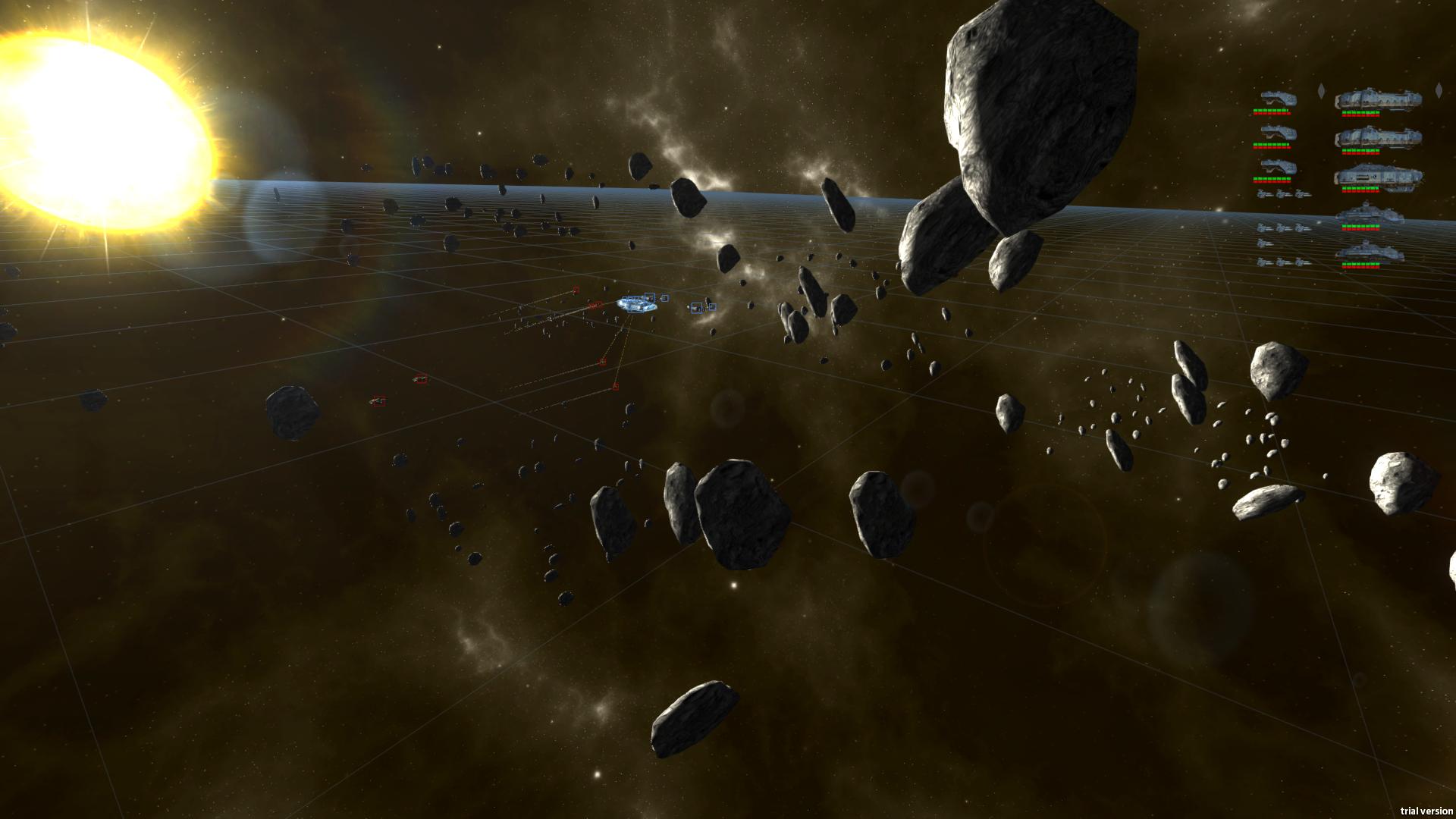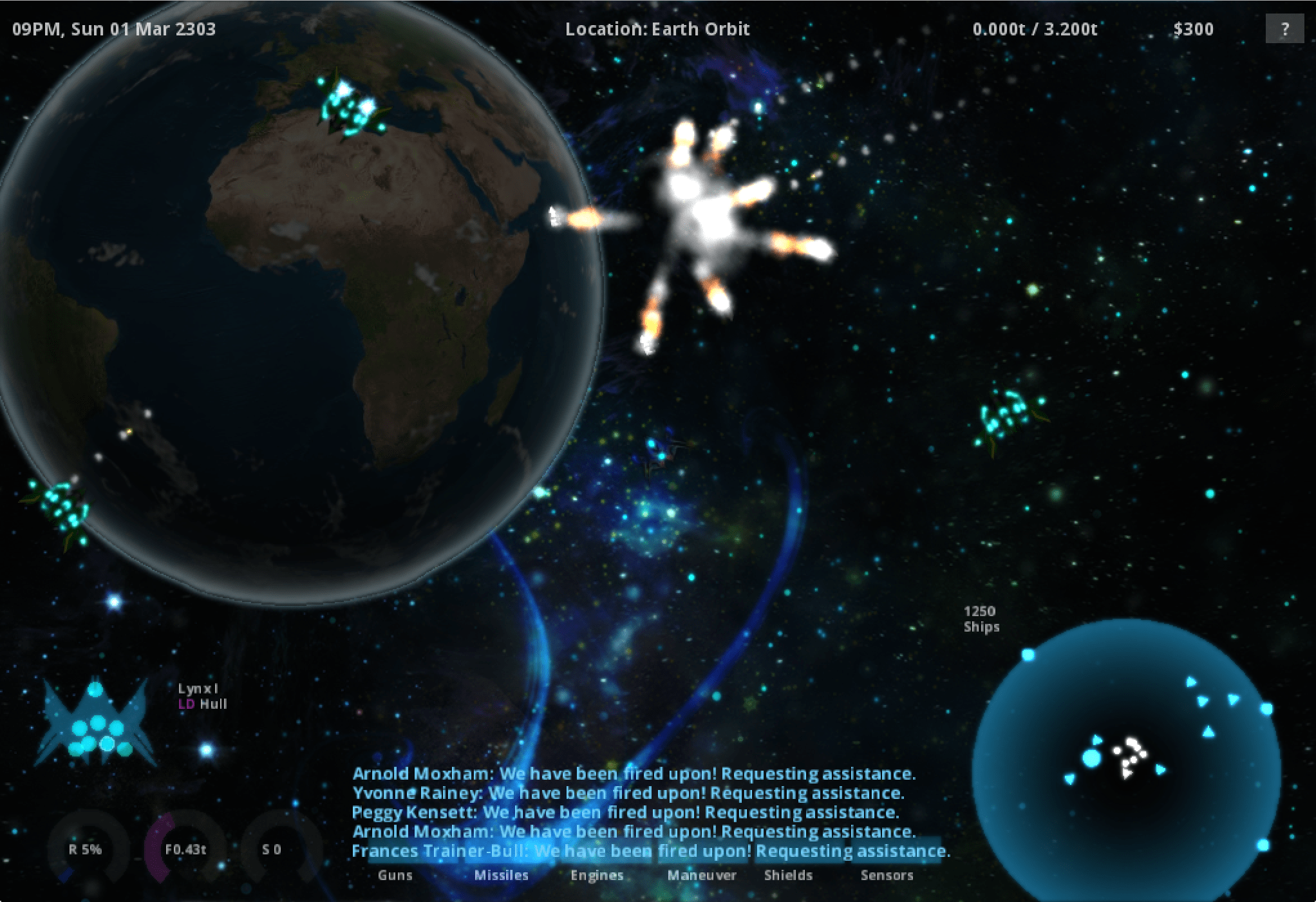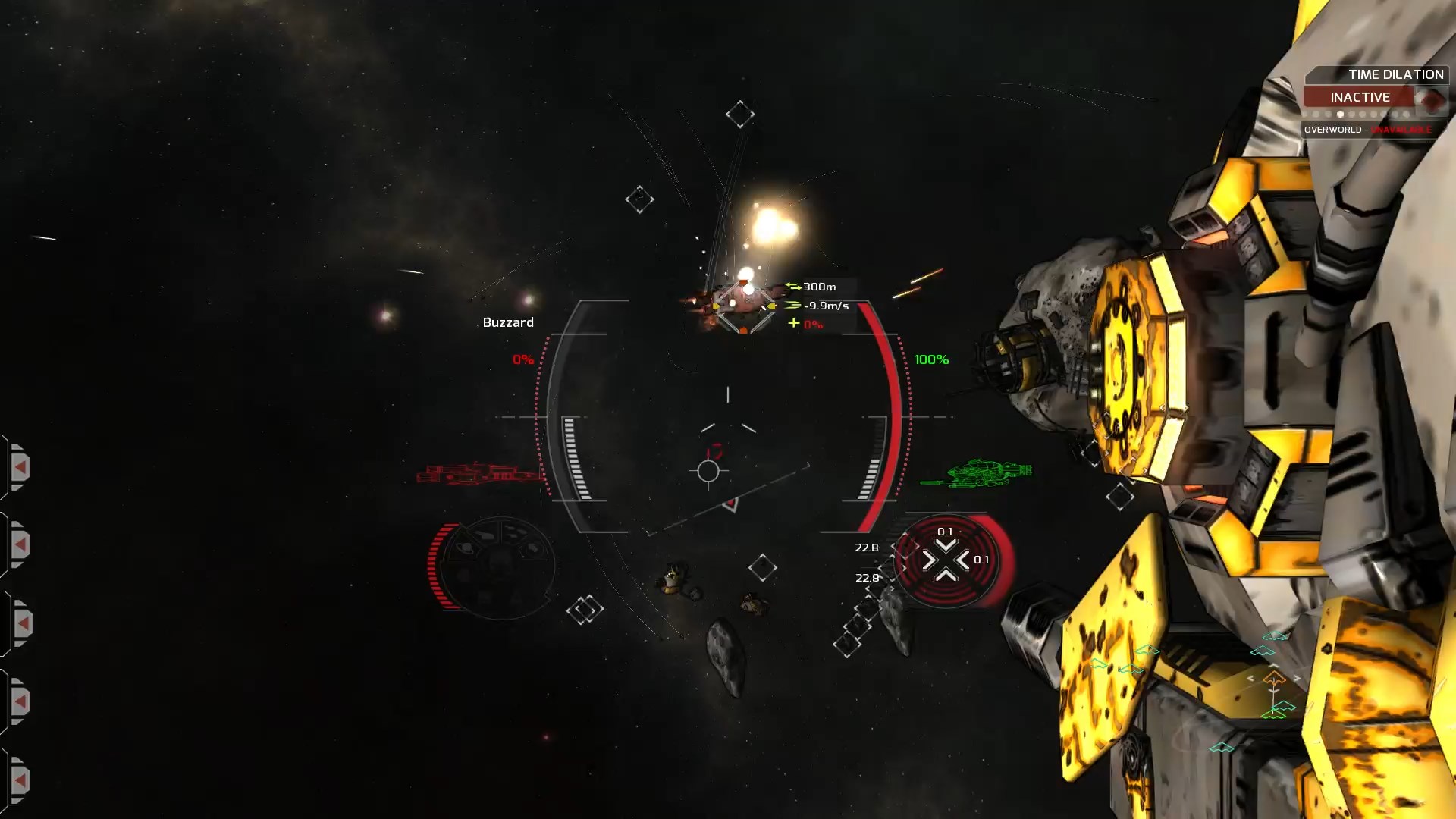
A little while back, I kicked to a Kickstarter called Fortune’s Tavern because it sounded like an awesome idea, to run a tavern in an RPG rather than be the hero buying from the tavern. The game was released a short time back and I’ve been enjoying my time with it, so imagine my delight when I saw that the same developer launched a new Kickstarter for a bureaucratic-focused parody space RPG called Star-Bored. In this game, you play an Imperial officer tasked with helping to crush the rebellion, but not before you tuck away a bit of the Imperial plunder for your own self. ;) I kinda loved the idea, so I reached out to the game’s developer, Michael Flynn, to learn more. Below is the result, and I hope you find it as enjoyable and enlightening as I did.
Brian Rubin: Hey, thanks for taking my questions. First off, could you please give us the rundown of what Star-Bored is for folks who might not have yet visited the Kickstarter?
Michael Flynn: Star-Bored is dark-comedy, strategy-RPG set in the distant future where a dark and sinister Bureaucracy has taken over the galaxy. Yet, even as the Bureaucratic Imperium tries to wrap the galaxy in red tape, rebels are beginning to unite on a thousand planets across the empire.
The player starts the game as an officer in the Bureaucratic Navy and is given control of the latest Battlestation, equipped with all the latest in rebel hunting technology: including battle mechs for ground combat, a squadron of fighters, advanced propaganda equipment, and enough firepower to obliterate rebel planets.
It’s the player’s job to travel throughout a dynamic, procedurally generated universe searching for planets that have fallen under rebel influence and defeating them by any means possible, all within the strict time limits laid down by the Bureaucratic Imperium. Of course, we try to parody as many classic sci-fi elements as we can during the process of the rebel hunting including the meeting of alien species, space monsters, special anomalies, and an ancient race of Progenitors.
BR: Where did the idea for Star-Bored come from, and how long have you been working on it?
MF: We are a small, family-run, game company that includes my eight year old son. A year ago my wife and I introduced him to Star Wars and when we finally arrived at the later films, he mentioned how much he’d like to command the Death Star…I was shocked by this. When I watched Star Wars for the first time I wanted to be Han Solo but he watched them from film 1, in the “correct order”. He wanted to be Anakin Skywalker, even after he’d turned evil. As disturbing as this was it set me on the path of a game where the player got to control a battle station capable of destroying planets. I’ve been working on the project on and off ever since.
BR: Could you give us some details regarding the universe this all takes place in? Will there be a multitude of aliens you can meet, for example, or is it all humans except for the mysterious Progenitors (could you tell us about them too?)?
MF: The inhabited worlds of the Bureaucratic Imperium consist of five races…or more precisely five branches of humanity that have taken different evolutionary paths and now seem quite alien to each other. There are also travelling aliens from species made mostly extinct by the spread of humanity, as expected these are usually hostile towards humans, or at the very least suspicious and wary.
Progenitors are a main alien influence in the game however. These aliens are all thought to be long dead yet their relics, space stations, and technologies are still floating about in the universe waiting to be salvaged by brave explorers. One of the larger side-plots in the game allows the player to explore the mystery of what happened to this race and what they have to do with the founding of humanity.
BR: It looks like the player is going to have a lot on their plate, from hunting rebels to hiding their own corrupt activities. What kind of UI have you created to juggle all of these elements?
MF: Like in many sci-fi TV series most of the action begins on the bridge of your starship which consists of a huge screen and interactive consoles. On the screen you can call up pictures of planets, contact NPC’s, and view statistics (such as how many days remain to you).
In order to access different features of the game, like hacking satellites, running propaganda campaigns, or launching missile attacks the player must interact with the correct console on the bridge. We thought this was a nice way of minimizing on menus and making the game feel more immersive.
BR: Now it looks like much of the action will focus on individual planets, such as weeding out rebels and the like. What types of actions will the player be able to do in order to keep a planet in line?
MF: There are 3 ‘rebel’ factors to consider when a player comes upon a new planet: how much rebel activity there is, how many rebel bases, industries, and terror cells are present, and how much support the rebels have in the general populace. Each of these areas need to be addressed in order to fully cleanse a planet of rebels and all within a time limit.
Rebel bases, industries, and terror cells, are probably the easiest to deal with…or at least the least complicated. Players can either choose to fire missiles from the ship to take them out, or send in their mechs and fight tactical, turn-based battles against the rebels. Missiles are perfect for bases that are in wilderness areas of the planet but if the player chooses to use them against urban terror cells, or industrial sites then there can be serious repercussions that range from protest, new bases forming, or full blown rebellions breaking out.
Rebel activity can be lessened in several ways too. The first is by hiring bounty hunters to take out rebel leaders in the area, although bounty hunters, if not paid enough, may switch sides and can come back and try to assassinate the player. Secondly the player can take over the black market, essentially starving the rebels out, although this costs both time and money. Finally, if the rebels are using space-craft, the player can fight space battles and set up a blockade to stop their movements.
Rebel support on a planet is possibly the most difficult to deal with; how do you change the hearts and minds of a whole population? Through the skilled use of Propaganda.
BR: Could you give us an example of how propaganda will work in the game? Not enough space games have this, I feel, so I’d love to learn more.
MF: Because each planet is so different propaganda is a tricky thing to get right. Running campaigns takes weeks and getting it wrong might not just give no success but may have a negative result, turning the population more towards the rebels. The main six planetary factors that affect propaganda are:
- Cardinal Industry
- Government Type
- Dominant Species
- Religion
- Personality
- Rebel bases present
With each of the types ranging between having between 6 and 18 different options finding the right propaganda to use on a planet can be tricky. Fortunately the POD Battleship comes equipped with the very latest in propaganda control technology, and gives you six different types of propaganda to try.
- Bandwagon – Convinces a population to do something because everyone else does it.
- Underdog – Appeals to lower class masses.
- Endorsement – If you can convince a local celebrity to join your cause you can enact this form of propaganda. Particularly effective on worlds with the tourism industry.
- Religious transference – Allows you to link you message to a particular god. Super effective on worlds with a local deity.
- Terror – Tap into a populations native fears to get your message across.
- Logical Fallacy – Use a false logic to convince a population that your cause is right.
So, on a planet with a dictatorship government and a xenophobic personality, ‘fear’ might be the right way to go. On one with low tech industries and a monarchy the best course might be ‘underdog’. Some planets you find will be highly susceptible to one type where as others will be only partially susceptible to any.
This is quite a huge subject and so I’ve added a link for more information:
https://www.kickstarter.com/projects/1738689949/star-bored-adventures-in-a-bureaucratic-dystopia/posts/1181746
BR: Now according to the video on your Kickstarter, it looks like the player will have the option to join the rebels. Is that always an option, or will certain things need to happen before that option presents itself? Also, how does that change the gameplay, if at all?
MF: Joining the rebels doesn’t become an option until the player has unlocked all eight sectors of the galaxy by proving their worth to the Emperor. So about half-way through the game. Even then the player must make choices that favor the rebels in the many random events that occur. For example, if a player has wiped out the five top rebel generals by then, a difficult but not impossible task, then the mission to join the rebels can’t happen. If the player does go the difficult route of joining the rebel the game changes significantly in the fact that they will now be going from planet to planet trying to drum up support for the rebels and wiping out Imperial bases.
BR: I have to say, I love all the acronyms, as those seem to be a cornerstone of any good bureaucracy. How much work has gone into coming up with these clever acronyms, and what are some of your favorites?
MF: We are a family of punners and so coming up with them over the last few years has been a lot of fun…sometimes I turn to my wife in bed and say PIE, or something similar, to indicate I have another. PIE is the Planetary Incineration Engine that powers your ship.
Perhaps it’s my childish humor but I love the RUMP – The Rebel Underground Mercenary Protectorate (a faction that helps the rebels), and FOOL – Fighting, Orange Octopus Larva (a common space monster that tries to leach power from ships…you gotta pity those FOOLs!
BR: How big can the galaxies in the game get, and will you be able to have fine control over how they’re generated (i.e. shape, size, how many habitable planets, etc etc).
MF: The galaxy is split into eight sectors which represent different parts of the empire. The initial sector you start in a basic, low tech/ agricultural zone where most planets (although not all) are minimally populated and where rebel interests are not strong. Each zone is created randomly and can extend infinitely so long as a player chooses to stay in that zone. If a player wants highly populated planets to spawn, with high rebel threat, and with greater rewards then they can change zone. Once inside a zone however the game engine decides on the types of planets, special anomalies, and encounters you might come across.
BR: Besides the rebels, will there be other factions that can cause you problems, such as pirates or rogue governments?
MF: There are other factions, although most are aligned to one side or another, and as a player wipes them out so a zone becomes more secure. I think, what I’d like to stress most strongly, is that the rebels are not one unified movement but rather a whole host of smaller ones. Some stretch across multiple sectors, while some are limited to single planets, which make dealing with them all the more dangerous as you never know how a particular group might react. The smaller ones, are essentially pirates that are using the greater conflict to take advantage of the situation whereas the larger ones are more serious movements dedicated to truth, freedom and all that jazz.
BR: Do you have free reign over where you go and what you do, or are you obeying orders from the Imperium?
MF: Players are able to go wherever they like, any time they like. After all, you have a ship and you’re in control. At the beginning of the game, when you are still unproven however the Imperium will not be impressed with you going off course, not unless you do something particularly successful in their name. Later on, as you make a name for yourself they allow you more autonomy. Break away from their orders too much however and they will send auditors to check on your ships records and funds…maybe even the most dreaded auditor of all, Lord Voider!
BR: How are you finding running a Kickstarter campaign so far? If the campaign sadly doesn’t succeed – which I hope of course it does – do you have a plan B such as alphafunding?
MF: This is our second Kickstarter and so we know the drill now (lots of coffee and stress on the days that nobody backs) yet we are not only doing it for the, fairly modest, £4000 we are asking for. With our last game we had such a great response, and such great input from our backers that we really wanted that experience again. I especially loved the backer made NPCs that people helped create, and so we are hoping some people will choose to create bounty hunters or assassins this time.
Should we fail to make the money however we have decided to fund it ourselves from the profits of our first game. It will mean that we can’t take on extra coders (and add 6 months to our timetable) but it will still get completed. I love it too much to just give up!
BR: Finally, are you planning any kind of hilarious tie-in with your other game, Fortune’s Tavern? ;)
MF: We have discussed bringing out a Fortune’s Tavern DLC at the same time which would allow characters from Star-Bored visit the tavern. It’s just been talk so far…but you never know!



